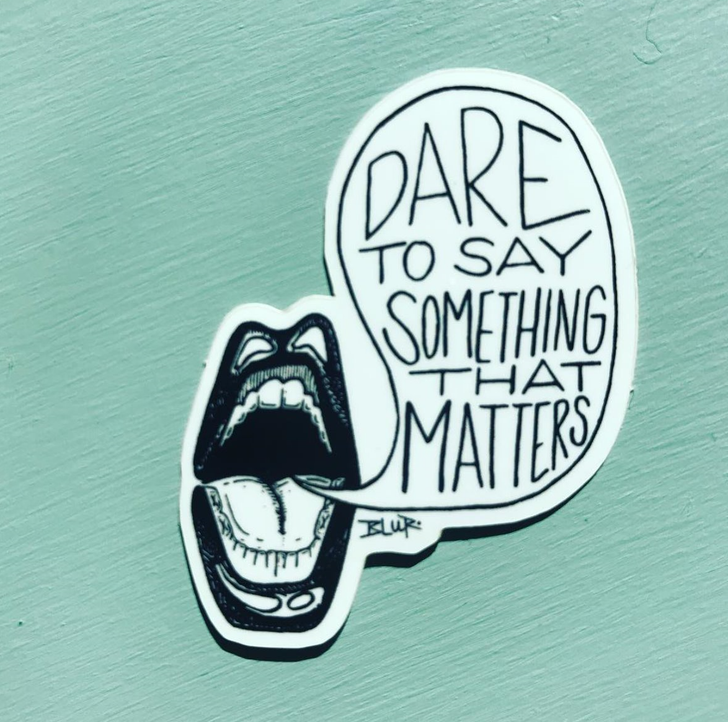According to the NSVRC's most recent studies on false reporting of sexual assault, the percentage of false reports can range from 2-10%. This number is obviously based on the amount of reports filed, therefore this number isn't influenced by the whopping estimated 63% of assaults that are never reported.
These findings were supported by the following studies: A multi-site study of eight U.S. communities including 2,059 cases of sexual assault found a 7.1 percent rate of false reports (Lonsway, Archambault, & Lisak, 2009), and a study of 136 sexual assault cases in Boston from 1998-2007 found a 5.9 percent rate of false reports (Lisak et al., 2010). Using qualitative and quantitative analysis, researchers studied 812 reports of sexual assault from 2000-2003 and found a 2.1 percent rate of false reports (Heenan & Murray 2006).
In main stream media, there seems to be this single coin that represents the entirety of sexual assault awareness, and people are expected to identifying with either heads or tails. Heads will represent the essentially pop-culture, feminist-based, women's-liberation movement side of the coin, and tails is the political media side, fostered by political allegations of sexual assault, strategical campaign arguments, and the like.
The idea of raising sexual assault awareness has exploded in common culture within the past couple of decades, becoming a much more regularly pioneered topic of conversation. This liberation of more comprehensive idea of sexual violence in common-place society, by making it less prohibited by social customs, has enticed a slew of both positive and negative repercussions.
The special interest groups such as feminists, moral "entrepreneurs," news reporters, and political campaigners/parties that are desperately calling attention to the "reality of sexual assault," are almost always standing behind this premise: "we are trying to bring awareness of sexual violence in order to battle it." Though, this really couldn't be further from the truth.
Sexual violence statistics are absolutely unreal.
To briefly touch on a few, according the Department of Justice's National Crime Victimization Survey:
191,670 rapes/sexual assaults were experienced by victims ages 12 and older in the U.S. in the year 2005.
25% of all girls will be sexually assaulted by the age of 18.
Every 46 seconds, a woman is raped in America. That is 78 rapes each hour.
1 in 5 women will be raped at some point in their life.
In 8 out of 10 cases of rape, the victim knew the perpetrator.
These statistics are not even dipping into the mere 12% of sexual crimes against children that are actually reported to the authorities, or even broaching the category of sexual assault against men, or any form of sexual violence short of completed rape.
Clearly, sexual violence is a major problem in today's society. Surely, it's been a problem since little short of the dawn of time. Yes, it was a taboo subject for quite some time-- time when it really shouldn't have been-- which, admittedly, did foster an environment for lower rates of reporting and less consequence for assailants.
Despite this, this almost over-awareness of sexual crimes has recently devastated main stream media.
So, what do I mean by "over" awareness? Can you really be over-aware of something that needs to be acknowledged? Something that needs to be fought against? Something that needs to stop?
Maybe "over-aware" isn't the best possible term. Numbed, deadened, over-exposed, over-stimulated, uncommonly seasoned, or too-knowing, could all do as well.
As a society, we are completely desensitized to sexual violence. It's viewed as common, casual, and even influential.
As a college student who sat in an orientation class this past Monday at my university, where the entire hour was dedicated to a slideshow explaining the difference between sexual consent and non-consent, its clearly not alien ideology. In 2005 alone, 97,000+ college students ages 18-24 were victims of alcohol-related sexual assault.
Despite the obvious reality that sexual violence occurs-- and occurs frequently--, today's over-sexualized culture is doing no favors towards advancing realistic views on assault and the victims of these crimes.
Assault allegations are, arguably, commonly used as a weapon of political capacity. I'm not condoning sexual violence within politics at all, but am merely highlighting the fact that the media is.
The recent encouragement for abundance of women to come forward and share about their sexual violence experiences, is not out of the kindness of these people's hearts. The most recent movement of #WhyIDidn'tReport is an example of this. This movement was spurned out of the Kavanaugh scandal, along with #BelieveSurvivors.
It's clear that this call for an outpouring of assault recounts isn't to bring liberation or even a sense of freedom to these victims of sexual violence. But rather, it is a platform literally constructed of the retellings of sexual violence that people have endured-- these stories that simply serve as a leg-up to argue politics.
The media isn't doing anyone any favors; it's the embodiment of hypocrisy.
These movements aren't making any real strides towards getting true justice for actual victims, harsher punishments for guilty violators, or even coming remotely close to catalyzing change in the face of this violence.
What they are doing, though, is abusing their reach of influence, capitalizing on the tragedy of these events in the first place, and implying to all that not only are these acts of violence typical, but also expected.
Because it's no longer really a matter of statistics, but a developed hesitant regard to credibility. And this isn't the true victims fault, the court systems fault, the justice systems fault, false-reporters fault, or even the abuser's fault.
It's society's.



















